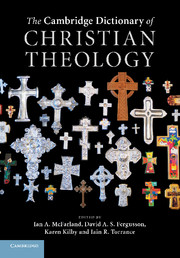Q
Published online by Cambridge University Press: 05 June 2012
Summary
Quaker Theology Quakers' enduring suspicion of ‘theology’ can be traced back to G. Fox (1624–91), generally regarded as the founder of Quakerism, and his dissatisfaction with religious ‘professors’ – those who ‘professed’, and could mount an intellectual defence of, beliefs that were not reflected in their lives or actions. In contrast to such ‘professors’, Fox reported that he ‘had received that opening from the Lord that to be bred at Oxford or Cambridge was not sufficient to fit a man to be a minister of Christ’ (Journal, entry written in 1647). His own emphasis on knowledge of God that was experienced and lived out led to a relative de-emphasis within Quaker thought on arguments from Scripture, Christian tradition, or reason. While these sources remain important in Quaker thought, their use is conditioned by the need to speak from and to an individual's or a community's experience. Nonetheless, originating in a highly literate age in which religious controversy was central to public life, Quakers have from an early stage produced theology. The distinctive forms of Quaker practice – unprogrammed worship based on silence, ‘quaking’ and similar manifestations of emotional and religious fervour, the lack of traditional sacramental practice, women's preaching and ministry, actions and speech that challenged social hierarchy – provoked external challenges that in turn forced early Quakers to articulate what became ‘Quaker theology’.
- Type
- Chapter
- Information
- The Cambridge Dictionary of Christian Theology , pp. 422 - 426Publisher: Cambridge University PressPrint publication year: 2011

